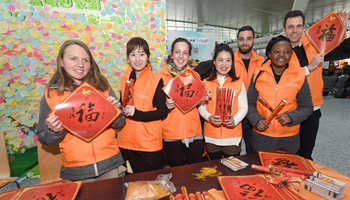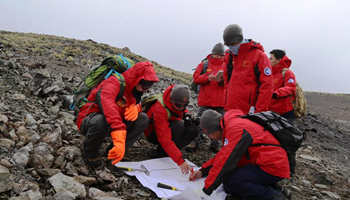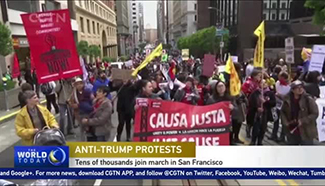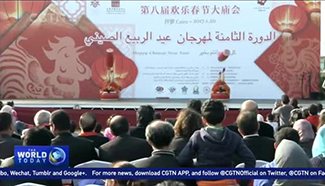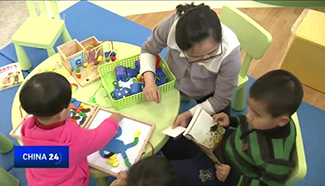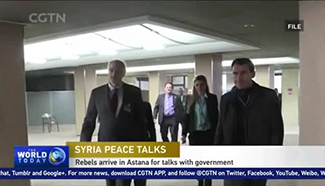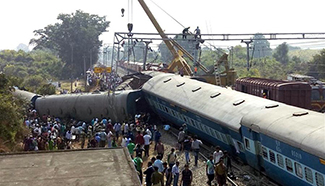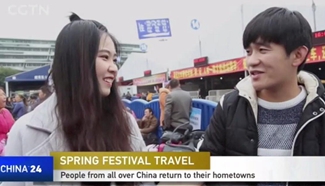By Rituparna Ghosh, Xiaochen Zhang
When the unknown person going by the name of Satoshi Nakamoto created blockchain technology in 2008, he had a single vision: a peer-to-peer electronic cash system. What he didn’t realize is that his creation was not limited to this one application. The ability to be integrated into various industries from logistics to healthcare, from energy to agriculture has led to blockchain being referred to by many as a disruptive innovation.
Although blockchain is gaining popularity quickly, it has yet to be embraced by the public sector. As Aanchal Anand from the World Bank put it, “The blockchain is an exciting new technology that can potentially produce solutions to several of our pressing development challenges. At the same time, there are many unanswered questions.”
“The most effective way to get these questions answered is to bring global innovators, investors and policy makers together, to co-create solutions that contributed to the achievement of sustainable developing goals (SDGs) through a multi-sector, multi-stakeholder process.” said Xiaochen Zhang, the founder of FinTech4Good. “Our goal is to bring blockchain solutions providers and the development community together for a constructive conversation. China’s blockchain leaders are very important for this debate.”
Blockchain4SDGs Alliance brings together institutions and global leaders to provide thought leadership and investment advisory to scale up blockchain4SDGs solutions. The global Blockchain4SDGs Roundtable was held in January in Washington DC and participated by around 200 industrial leaders, investors, and policy makers from all over the world.
The event featured some of the most promising blockchain for SDGs solutions in areas such as energy trading, digital asset management, economic identity of the poor and healthcare including several Chinese blockchain applications.
Robert Zakon, the White House Presidential Innovation Fellow, shared the latest initiatives that were currently being taken to accelerate innovation, such as blockchain technology in the U.S..
Ying Cao, from Energy Blockchain lab, introduced their ground breaking blockchain based emissions trading application with great length. Shanyuan APP combines blockchain technology with big data to induce positive philanthropical behaviors. Seratio Blockchain 2.0 created a new way to forecast the where, what and how of impact interventions. BIX™ Bank System supports four types of financial transactions with three types of currencies – US dollar, BIXCoins™ (virtual currency), and Bitcoins (crypto currency) which may push the technology carver in the financial industry to another level.
According to the chairman of the Beijing Blockchain Application Association, Yedong Zhu, “The application of blockchain technology in bitcoin, and in the financial sector is already very exciting. Its application in other sectors will bring even more trans-formative changes to our life in the future.”
However, “Why hasn’t Wall Street embraced blockchain?” Daniel Spuller, Director of the DC based Chamber of Digital Commerce, said:“They are starting to, but it would take an entire change to the culture up there, all the pipes are in order and they would have to rip up everything and start brand new.” The challenge of its adoption in non-financial sector will be even greater.
Ashis Gadnis, the CEO of Banqu, added, “I have never found an event that made a meaningful connection between blockchain and the SDGs. I was the first one, about six months ago, banging on every door, with my partners, I was the first one to speak at the UN Assembly that went: ‘Guys, you have got to connect blockchain to the SDGs’ and when I saw Xiaochen’s email, I was like, YES!”
Since SDGs are highly relevant to the welfare of the whole society, government and other public agencies need to get actively engaged in the conversation to fully harness the power of blockchain technology. From its birth, the technological advancement of blockchain is through global collaboration. In Yedong Zhu’s word, “The blockchain 3.0 will require even more of such intensive collaborations. ”
This is the first of many events held around the world over the coming year, by Blockchain4SDGs Alliance, to develop collaborative initiatives that brings blockchain solutions to emerging markets. One hundred SDGs focused blockchain start-ups and small businesses will be selected as a part of an acceleration program called Blockchain100. The purpose of the program is to support these businesses to grow in revenue and size, as well as enter into new markets over the next three years. Due to the size of the market and fast growth of both the talent and industry, China will play a growing important role in participating and facilitating such global dialogue and collaborations.
(Rituparna Ghosh is a MSF Candidate at Johns Hopkins Carey Business School, Xiaochen Zhang is the founder of FinTech4Good, New Development Ventures)

